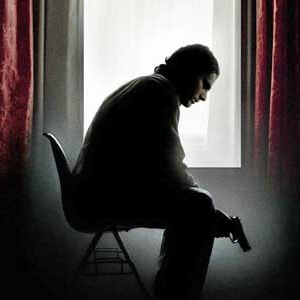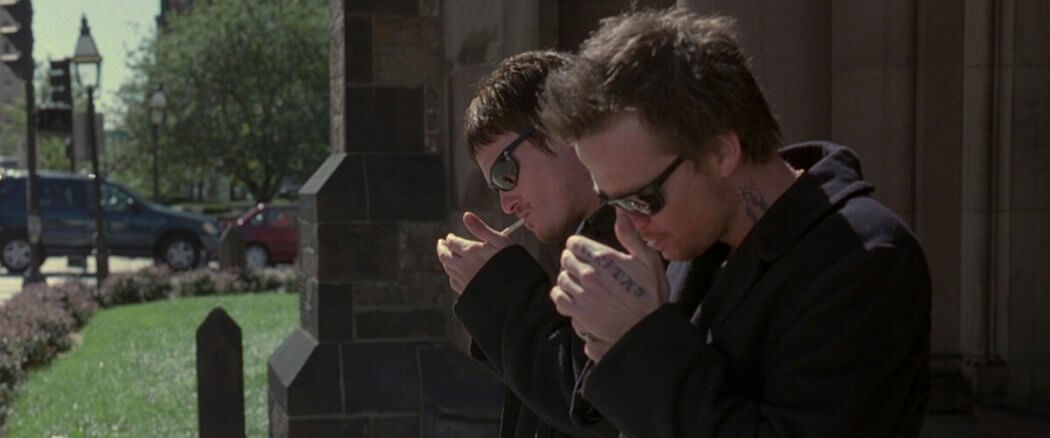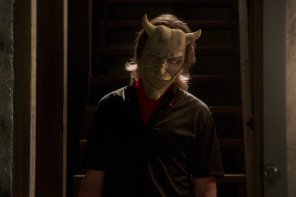Cult films are a distinguished breed. The label, typically granted to features that pass through theaters unnoticed only to gain a ripe following on DVD, is characterized by a rabid fan base with a religious devotion to converting the uninitiated. Unfortunately, as those who study cults can attest, the worshiped is not always worthy of the worship. Such is the case with The Boondock Saints.
Saints debuted in 2000 with a run-of-the-mill domestic gross. Written/directed by first-time filmmaker Troy Duffy, the film earned a minor profit its opening weekend, and quietly disappeared. To Duffy’s delight, however, the movie has since transformed into a smash hit on DVD, making it one of the newest entries in the cultic underground.
Sadly, the movie is also one of the least deserving of its second life. At best, Saints is diet Tarantino. At worst, it is a morally repugnant disgrace — cashing in on the trump card of religion to excuse the rambling of the profane.
Amateur Hour
In the opening scene of the film, two dark-clothed figures rise from a church pew to pay their respects at the front of the sanctuary. The men bow before a cross respectfully, kiss the feet of the crucified Jesus, and silently go on their way. Behind them, a priest delivers a fiery exhortation about the need for manifest justice in a frequently unjust world. The men, we soon discover, are street-smart Irish brothers chosen to be God’s earthly ministers of vengeance against those who blaspheme His name.
Connor and Murphy MacMannus play the two “saintly” kinsmen with notable charisma and charm. Their brotherly bond rings true, providing the only flicker of warmth the film has to offer. Unfortunately, their strengths are overshadowed by the ham-it-up performances of everyone around them. Willem Dafoe leads the charge as an F.B.I. agent tracking the brother’s murderous wake. In a role that calls for him to writhe on the ground in a dress and pantyhose, Dafoe chews the scenery and vomits it back up.
Yet, actors can only do so much with the direction given them. The blame ultimately falls on the shoulders of Troy Duffy. Duffy has clearly seen his share of gangster movies, but his profanity-laden screenplay feels both derivative and ad hoc. Rather than developing a consistent tone, the script leaps to and fro from one genre to the next. In the end, Duffy offers neither style nor substance; just bits and pieces in search of a whole.
Munich
The flaws in Saints are doubly illuminated when compared to 2005’s Munich. Munich also tells the story of a group of rogue assassins who target wicked men. Spielberg’s film however, provides a moral center through the heart-wrenching portrait of Avner (played by Eric Bana). Avner, the team leader of a group assigned to kill the Muslims responsible for the 1972 Munich murders, never savors the assignment he has been given. He completes his mission out of loyalty to his Jewish homeland; and yet, with every successful assassination, we witness the indelible impact of murder on Avner’s soul.
 A soul is exactly what the Boondock Saints lack. Sure, they exhibit loyalty toward their friends and remember to say a prayer after pumping a man’s head full of lead, but killing comes peculiarly easy and without remorse. In fact, they seem to enjoy it. When a character expresses excitement after mowing down three gangsters in a coffee shop, one of the brother’s turns to him and responds, “Liberating, isn’t it?”
A soul is exactly what the Boondock Saints lack. Sure, they exhibit loyalty toward their friends and remember to say a prayer after pumping a man’s head full of lead, but killing comes peculiarly easy and without remorse. In fact, they seem to enjoy it. When a character expresses excitement after mowing down three gangsters in a coffee shop, one of the brother’s turns to him and responds, “Liberating, isn’t it?”
To cite the depravity of the men they kill or the Heavenly origin of their mission as an excuse for such callousness is nothing more than a cop out. The brothers are not saints, they’re human. And murder is murder.
By the end of Munich, Avner is a mere shell of the man he once was. He avenged his people, but his hands will never feel clean again.
Veritas
Near the end of Saints, one of the brothers places a gun to the temple of a man he is about to kill. The Latin word “Veritas” is seen tattooed across his wrist as he cocks the weapon. The sight calls stark attention to the fact that “truth” is nowhere to be found in the land of The Boondock Saints. Duffy has cobbled together a far different version of reality; a world where violence is the answer to injustice, and murderers are glorified as saviors.
Mixing violence, comedy, sex, and God into a half-baked package, the result is an adolescent wet dream — where male machismo takes precedence over reason, and God is the one to blame when dad asks about the sheets.





